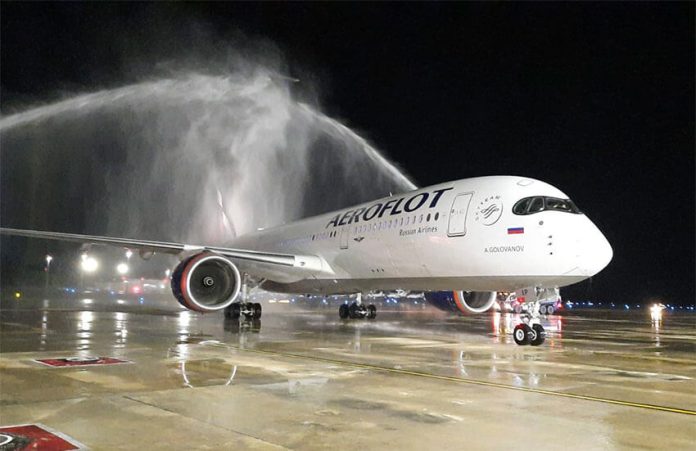Russia’s invasion of Ukraine and high inflation will have an adverse impact on tourism in Mexico this year, according to the head of an industry group and an academic.
Braulio Arsuaga, president of the National Tourism Business Council (CNET), said Monday that Mexico’s tourism sector is already feeling the effects of the conflict in Ukraine and high inflation, which has increased the cost of holiday packages and air travel, among other tourism-related expenses.
Noting that tourism activity has not yet fully recovered from the pandemic-induced downturn, Arsuaga said that 2021 was a “complicated” year for the sector and 2022 is also shaping up to be “very difficult.”
“When a lot of [tourism] companies did their forecasts we didn’t have the omicron variant or a war,” the CNET chief said during a virtual press conference.
Francisco Madrid, director of the Center of Research and Tourism Competitiveness at Anáhuac University in Mexico City, told the same press conference that the war in Ukraine “obviously” has the potential to affect tourism in Mexico.

“The tourist flows from Russia, about 65,000 people last year, and Ukraine, 20,000 people, are expected to disappear,” he said, although President López Obrador said late last month that Russian airlines will not be prohibited from flying into the country.
Madrid also raised concerns about the impact of inflation on tourism, and asserted that a full recovery from the downturn is still some way off, noting that spending by international tourists in 2021 – US $19.8 billion – was 19.4% below 2019 levels.
Some 31.8 million international tourists came to Mexico last year, a 31.2% increase compared to 2020, but the figure was still 29.2% below 2019 visitor numbers. Former Tourism Minister Enrique de la Madrid said in 2018 that international tourist numbers could reach 50 million by 2021, but that prediction obviously didn’t anticipate the global spread of the coronavirus from early 2020.
Asked whether the new Felipe Ángeles International Airport (AIFA) – which will open north of Mexico City later this month – will aid the tourism recovery, Arsuaga suggested it wouldn’t, at least in the short term.
“The AIFA is a very small airport with a view to growing,” he said, noting that only three airlines – Aeroméxico, Volaris and VivaAerobús – have announced they will use the airport for a “few flights.”
With reports from El Economista and El Financiero
